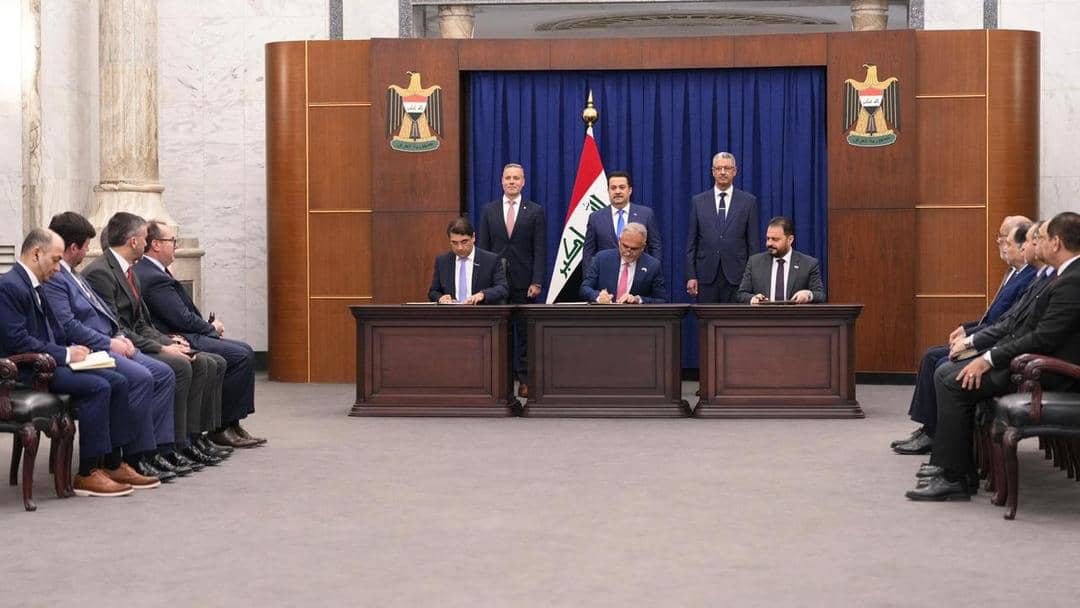Iraq Reintroduces Exxon Mobil to Oil Fields with Agreement to Develop the "Majnoon" Field and Infrastructure

In a move that enhances the return of major global oil companies to Iraq, the American company "Exxon Mobil" signed an agreement with the Iraqi government on Wednesday, aimed at developing the giant "Majnoon" oil field and expanding the infrastructure for oil export, following a two-year hiatus from operations in the country.
According to four sources familiar with the terms of the agreement reported to Reuters, the agreement "includes a profit-sharing clause covering crude oil and refined products, along with plans to develop the infrastructure for exporting Iraqi oil in the south of the country."
The sources also revealed that the Iraqi state oil marketing company (SOMO) signed a separate agreement with "Exxon Mobil" "to secure storage capacity in the Asian market." The official Iraqi news agency had indicated last September that "SOMO" "is in advanced talks with Exxon Mobil regarding a potential agreement to provide storage capacity in Singapore using tanks owned by the American company."
This step is part of a broader strategy "where Iraq, the second-largest oil producer in the Organization of the Petroleum Exporting Countries (OPEC), attracts major Western oil companies and increases its production that has been constrained by years of war, in addition to corruption and sectarian tensions."
In this context, Iraqi Prime Minister Mohammed Shia' al-Sudani announced the signing of the agreement with "Exxon Mobil," without providing additional details. This signing comes as part of a series of agreements "that Iraq has signed over the past two years with major oil companies that had previously withdrawn from the country, such as American Chevron, French Total Energies, and British BP."
It is worth noting that "Exxon Mobil" was "one of the first Western oil companies to enter Iraq to develop oil fields after the American invasion in 2003, but it later withdrew from the West Qurna project due to what sources described as declining economic returns."
The company also "attempted to develop fields in the semi-autonomous Kurdistan region of Iraq, despite Baghdad's objections, but it also withdrew from those projects due to poor exploration results, according to sources." After its withdrawal from the "West Qurna 1" field, one of the largest oil fields in Iraq, "Exxon Mobil" transferred its remaining stake and operational responsibility to PetroChina, which became the main contractor for the project."
This agreement comes at a time when Iraq is moving to enhance its exports, especially after the "Iraqi federal government reached an agreement with the Kurdistan Regional Government and global oil companies in September to resume crude oil exports through Turkey, after they were suspended in 2023."
"This agreement is expected to contribute to pumping about 230,000 barrels per day back into global markets, at a time when OPEC+ countries are working to enhance their oil production and increase their market shares."